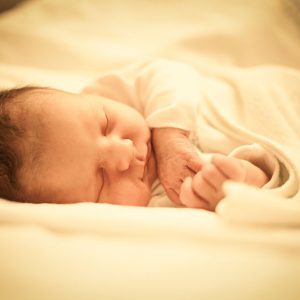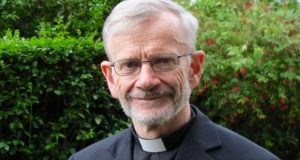
By Cian Molloy - 16 April, 2018
 With the referendum on abortion less than six weeks away, three Irish bishops – Denis Nulty of Kildare and Leighlin, John Buckley of Cork and Ross and Alan McGuckian of Raphoe – issued pastoral letters this weekend urging the faithful to vote ‘No’ on Friday 25 May.
With the referendum on abortion less than six weeks away, three Irish bishops – Denis Nulty of Kildare and Leighlin, John Buckley of Cork and Ross and Alan McGuckian of Raphoe – issued pastoral letters this weekend urging the faithful to vote ‘No’ on Friday 25 May.
“There is no easy way to talk about abortion,” said Bishop Nulty, early in his pastoral letter, in which he acknowledged that there are women who are affected by their choice to have an abortion in the past.
“I believe that there is real grieving in the wake of an abortion and that compassion and care should be our first response. I pray for all who seek healing. My concern here is not to dwell on the past but to safeguard the future. Nothing is as important for the future of our shared humanity as the right to life. Therefore, I wish to speak boldly and clearly.”
Bishop Nulty said it was his belief that life begins, not at birth, but long before it: “Think of the simple scene we have all witnessed countless times of family and friends craning their heads to look into a buggy to marvel at a newborn child. This wonder does not start at birth. The time a child first kicks in the womb and the time a child takes its first faltering steps are but different moments on the same journey.
“There is nothing to be gained by denying the truth that our lives begin at conception. What we have learned about our development in the womb will only be added to in the years ahead, but we already know enough. However, regrettably, the abortion debate is not really about biology. Everyone knows that a life has begun. The question is: whether it is right to deliberately stop that life being born. Some people argue strongly that a pregnant woman should have an absolute right to choose the fate of her pregnancy. I cannot agree. I believe that none of us – women or men – have an absolute right over the life of another.”
In his pastoral message, Bishop John Buckley traced the link between the presence of life and the presence of a heartbeat, which is discernible in an unborn child after about six weeks gestation.
“The nurse’s words ‘I can hear the heartbeat’ change the woman’s life forever,” he said. “The beautiful vocation of motherhood begins with the beating of the child’s heart and lasts for life.
“We must always care for the mother and child. Responsible support must also come from the father. We must especially support women with a crisis pregnancy.
“A mother may also be informed that her baby faces serious challenges or is perhaps terminally ill. She might be pregnant as a result of rape. Especially in those tragic cases both the mother and her unborn child can and must be loved and cherished. The child in the womb is innocent of the circumstances of its conception and its health condition. There is no other situation in life where the ending of the life of an innocent person is the answer to a difficulty.
“In all the political debates there is no mention of alternatives to abortion nor the impact of abortion in England. Neither is there any mention of the ‘rightness’ and ‘wrongness’ of human behaviour. All authorities on moral matters agree that the deliberate taking of an innocent human life is always gravely wrong. We can be sure that if a society decides that human life is disposable at its beginning, it will not be too long before it decides the same for human life at its end.
“We will never again have a more important vote. There is no cause more noble than to stand up for those who cannot stand up for themselves. Never before in history have we had so much scientific proof that the unborn baby is, in fact, a living, breathing human being.”
In his pastoral letter to the faithful of the Raphoe Diocese, Bishop McGuckian said he realised that the subject of abortion was “a very sensitive, delicate and painful topic for many”, but that he wished to make some points on the issue “clearly and unambiguously”.

Bishop Alan McGuckian of Raphoe
The right to life is universal, said Dr McGuckian, and for society to declare that any category of human beings should have that right taken from them is “a seriously backward step” and a manifest injustice.
“When we use the word ‘choice’, we need to remember that for the baby waiting to be born the choice is a matter of life and death,” he said. “An expectant mother needs and deserves the care and support of everyone around her, particularly if her pregnancy poses a serious crisis for her and her family. A mother may be informed that her baby faces serious challenges or is perhaps terminally ill. She might be pregnant as a result of rape. In such cases recommending abortion might seem like a gesture of compassion. Even in those tragic cases the unborn child needs to be loved and cherished.
“A compassionate society will do all in its power to support and love the mother and baby, and encourage responsible support from fathers. This vision of life makes sense to people of all faiths and none. While it is enriched by our Catholic faith, it is our common humanity that convinces us of the right to life of every human being.
“In the coming weeks I invite you to pray earnestly that the people of Ireland will ‘choose life’ and that the lives of all women and their unborn children will always be loved, valued, welcomed and respected in this country.”